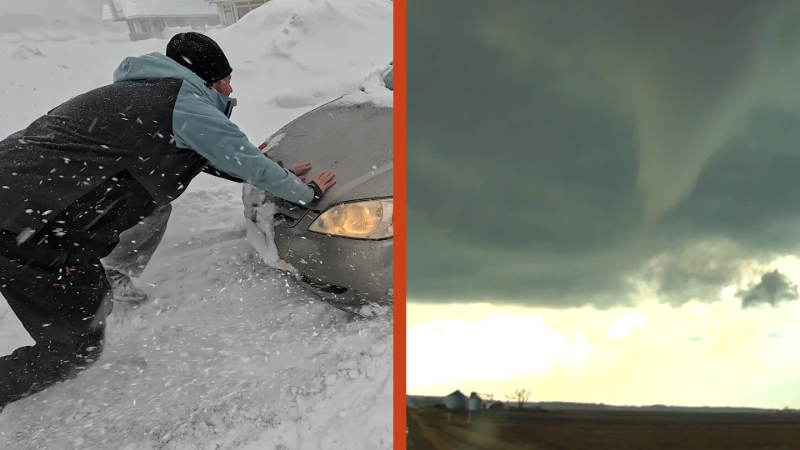Finally some warm weather for stargazers this week
Warmer weather will finally return to parts of the country this week, so you may finally find yourself outside to do some stargazing. There are a few interesting things to spot in the night sky.

Forecast temperatures for Friday evening with 50s and 60s in many locations.
First of all, the moon will be in the waning crescent phase this week, so it will rise later every night, making for good viewing conditions all week.
If you follow our social media platforms. (AccuWeather Astronomy Facebook and Twitter), we alerted you to a bright pass of the International Space Station this past Sunday evening. If you missed it, there will be a bright pass Wednesday night across the Eastern Seaboard. You can't miss the ISS, even in urban areas, as it is as bright as Venus. It will appear like a plane at first, but you will notice the steady movement without flashing lights as it grows brighter.

This pass will be brightest over New York City and New England. See more ISS information here
We've been discussing the planets. If you haven't seen then yet, check them out! You have probably seen Venus. It is clearly visible in the western sky after sunset. Jupiter rises before midnight now. You can't miss this bright planet in the southeastern sky.
Saturn and Mars are visible in the predawn hours. All of these planets will be fantastic this summer as they will be in the sky most of the night.
If you are like me, then you are probably ready to see some meteors! Good news. We have a good meteor shower coming up! The Lyrid shower peaks the night of the April 21/22, but there will be a few nights of enhanced meteor activity as the peak is not abrupt. The shower is best viewed later at night. The moon will set around midnight, also favoring late-night viewing.

Interestingly enough, you can spot random fireballs this time of year regardless of meteor shower timing. Read more about this occurrence in today's SpaceWeather.com post!
It is still a bit early in the season to spot the Milky Way, but it can be seen early in the morning in the eastern sky. Check out our guide to finding the Milky Way.
Not too many things are free anymore; however, looking at the night sky is still one of those things. Thanks for reading! Just look up; you never know what you will see.
Report a Typo















